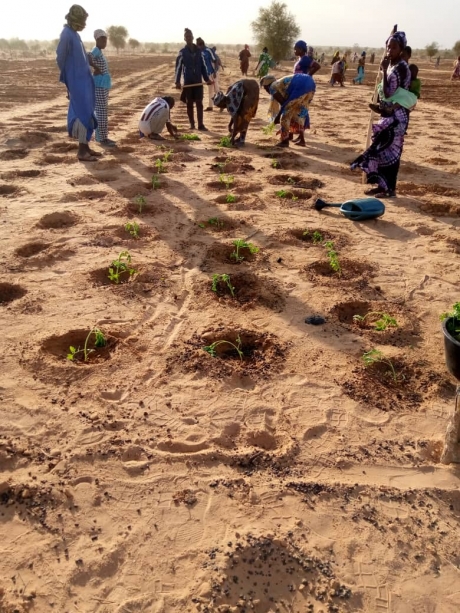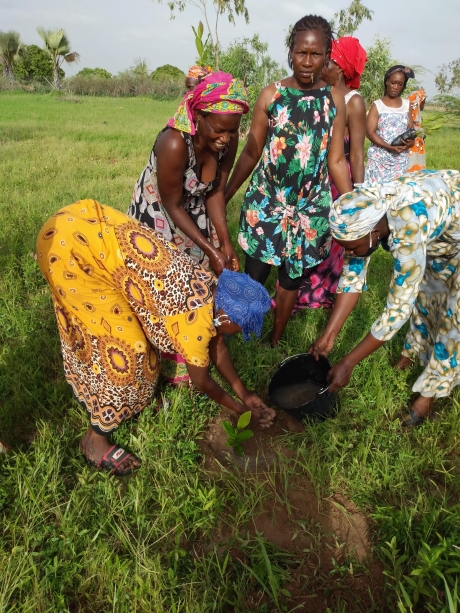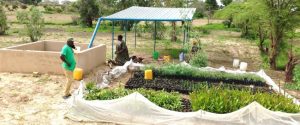Last September in Senegal, more rain fell in a single day than in the usual 3-month rainy season. Intense rain in shorter periods of time followed by a longer dry season are the effects of climate change and ultimately result in either too much or too little water for the farmers who rely on it for their survival. Close to 90 percent of farming households in Senegal practice rain-fed agriculture.
An FAO project is working to introduce both rainwater harvesting systems and innovative water management techniques that build on traditional methods. Launched in 2019, this project, called Strengthening Agricultural Adaptation (SAGA), builds capacities to adapt to climate change, ensuring that communities, in particular women, across Senegal have regular access to water, while increasing the efficiency of its use.
GARDEN OF RESILIENCE
Working with the local communities, FAO and its partners* implemented irrigation systems tailored to regional landscapes, weather patterns and the needs of the farmers. In Oudalaye village, nestled in the Ferlo sylvo-pastoral reserve in northeastern Senegal, FAO helped producers focus on traditional agroecological practices, locally called Gulle Kisnal, to reduce water evaporation.
Gulle Kisnal is an agroecological water management technique wherea half-moon shape is created around the plants to ensure water remains concentrated inside the mini basin and is not wasted through evaporation or run-off.
Through this and other methods, the SAGA project has also helped farmers develop a thriving market garden, known locally as the “garden of resilience.”
Aissé Sy, a young woman from the community, started working on the plot a year ago. She explained that the garden uses only organic fertilizers and organic pesticides and yields a wide variety of produce well into the dry season.
“We received training in garden management that encouraged us to use traditional practices for irrigating plants by growing them in Gulle Kisnal,” explained Aissé.
“Today more than 300 households in the village profit from all the hard work and are eating more nutritious and balanced diets.”


